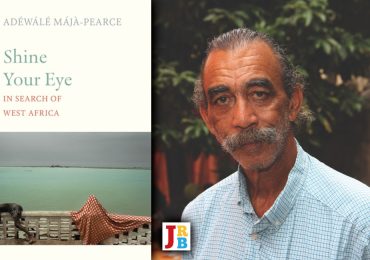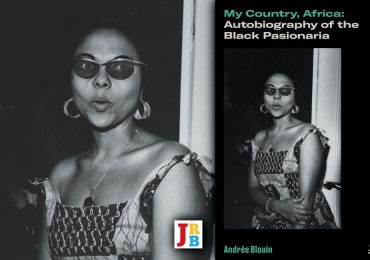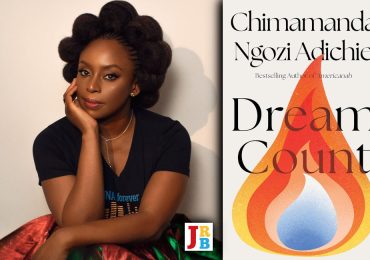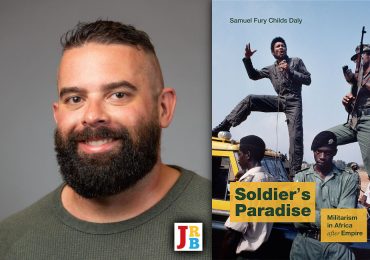I travelled across the continent on the morning of Saturday, April 22, to attend one of the most important annual events in world literature in this new century—the World Book Capital celebrations.
The World Book Capital initiative was launched by UNESCO, inspired by the success of its World Book and Copyright Day, in 2001, with Madrid, Spain selected as the first such Capital that year. Sixteen other cities have been honoured since then, with Port Harcourt, Nigeria, as the only one from Africa (2014)—until now.
This year, the World Book Capital is the West African city of Conakry in the Republic of Guinea—République de Guinée in French. The name Guinée was, according to one legend, coined in the eighteenth century when Portuguese travellers arrived in Sangareya Bay and met women washing clothes. When they attempted to speak to them the women told them, ‘We are women, go and speak to our husbands,’ in the local Susu language, whose word for ‘women’ is ‘guinée’. This name would stick through the Portuguese occupation and French colonisation, which ended in 1958. The capital of Guinée is Conakry, which has grown from a small, colonially established town in the Îles de Los in 1885 into a sprawling metropolis of some two million that now extends up the Kaloum Peninsula and into the Guinée mainland.
Conakry has been home to a much-loved literary festival, 72 heures du Livre (72 Hours of The Book), since 2008. The events include book readings, theatre and poetry performances, art exhibitions, panel discussions, concerts—all celebrating le livre. This event was the brainchild of publishing firm L’Harmattan-Guinée’s CEO Sansy Kaba Diakite. With Burkina Faso known for its annual Pan-African film festival in Ouagadougou, FEPASCO, and and Côte d’Ivoire for its Fêtes des Masques, Guinée and Conakry have steadily built themselves into Francophone Africa’s book capital.
And so, this writer ended up on a book-themed adventure to a far corner of the continent, three time zones away. The excitement began when I boarded an Ethiopian Airways plane in Nairobi at 5 am (I didn’t sleep the night before). Our first top was Bole International Airport in Addis Ababa, which is being rapidly remodelled. The trip then continued west, with stops in N’djamena in Chad and Abidjan in Côte d’Ivoire. At last, we landed at Conakry’s Gbessia International Airport.
Getting off the plane and heading out to the airport terminal, I immediately understood the distress that South African travel writer Sihle Khumalo catalogued in his book Almost Sleeping My Way to Timbuktu, in which he travels through a number of West African countries without a word of French. The discomfort started at immigration, before I had even been stamped in. Then I saw a young man holding a sign that read ‘Capitale Mondiale du Livre Conakry’. I immediately cheered up and told him I was here for this, as I pointed to the board, and he responded in French—a language I have never been too keen on learning. With sign language and a helpful airport staffer, he ensured that I got safely into the country, my passport stamped and with minimal fuss at customs.
Sallou, my guide, ushered me into a government VIP lounge where I waited for my fellow festival guests from across West Africa, as well as a delegation from Canada. Around midnight, we made it to the Hotel GHI, which would be my home for the next few days. Throughout these first few hours in Guinée I was feeling uneasy, as words flew around in brisk French and I would have to depend on a rare English speaker to translate.
The next morning, bright and early, I scoffed down everything on offer at the hotel’s breakfast buffet. The last meal I had eaten felt like it was a millennium ago. Plantain, cereal, coffee, omelette, fruit salad, yoghurt—and the croissants, soft and filling—all wolfed down like they would run out in the next minute. So far, so standard, fare-wise; but I would meet wonderful local cuisine over the next few days, with an especially memorable visit to La Gentilhommière restaurant, well-known for its seafood (and not to be confused with the one in Nuits-Saint-Georges, France).
While polishing off my breakfast, I was joined by a sleek gentleman who had nodded to me as I was filling my plate at the buffet. He had greeted me with ‘ça va’, to which I had responded … ‘yah’. A hungry man can’t be expected to think in coherent sentences, surely? When he joined me with his huge cup of coffee and scarf he spoke to me in French and I responded, sadly, ‘I don’t speak French.’ But it turned out he spoke English too, and this gave me a warm feeling in my chest—here was someone I could finally converse with. He introduced himself as ‘Uche from Paris’ and when I inquired where he was originally from he stated that he was Nigerian. (This made perfect sense: there isn’t anywhere you won’t find a Nigerian on this planet today. I bet that one day one you will be visiting the Maasai Mara in Kenya and the most impressive Maasai Moran doing the cultural dances will introduce himself as ‘Uche from Samburu’.) Uche from Paris turned out to be part of the team that was organising the events we would be attending in the next few days and he would be a valuable link for me while in the city.
I also met some of those I would be dealing with over the next two days, including my favourite new friend, Yves Antoine, a writer, academic and poet from Haiti who currently lives in Canada. This older gentleman, who speaks English, bless him, has written a helluva a lot on Haiti and its place in the world, as well as on the black world generally, including the recent Inventeurs et savants noirs (Inventors and Black Scholars) and Heros et rebelles du monde noir (Heroes and Rebels in The Black World). The book on heroes and rebels profiles warriors from Toussaint Louverture and Jean-Jacques Dessalines to Dedan Kimathi and Nelson Mandela, showing that black people, despite the prevailing propaganda, have always fought white invasion and occupation. Unfortunately for English speakers, all Yves’s work is written in French.
For me, the highlight of the World Book Capital celebrations was the official opening ceremony, which featured a world leader whose name could be a reggae beat, President Alpha Condé. President Condé leads a country which for many years was not exactly famous for being the freest, with both civilian and military dictators ruling since independence in 1958. (Condé was democratically elected in October 2015.) Guinée was also one of the worst affected regions when the Ebola virus struck three years ago, losing thousands of lives to the horrible affliction. Alongside Condé being the chairman of the African Union this year, the World Book Capital was a positive story happening in a country badly in need of some uplifting news.
Beyond that—well, literary gatherings tend to have a rhythm to them that is very familiar to those who attend more than a few a year. There are the writers and other artists who make up the main attraction, plugging their books and events to audiences large and small. Delegates from French-speaking countries like Mali, Burkina Faso, Canada, and the partner country Senegal would also feature. And as you would expect at such an event, the majority of guests had traveled in from the host country itself. Events included theatre, concerts, an art exhibition, keynote addresses, and poetry recitals in honour of departed Guinée authors, including Camara Laye and William Sassine. There were also a few standalone events, like a performance of ballet fused with indigenous Guinée traditions and a panel featuring the Guinée Red Cross and its work in the country.
There were also exhibitors at the two venues showing off their wares: publishers, book distribution outfits, and one featuring the journalists’ and photojournalists’ association of Guinée. Of interest to this writer was a stand that focused on the romance genre—we in Anglophone countries would recognise the books on display as the Mills and Boon type. It was amusing to see titles like Double Imposture and La Maison du Lac with the French version of Fabio on their covers.
All the events I attended were filled to bursting with enthusiastic crowds of all ages. We met up with students, politicians, businesspeople, would-be writers, journalists and ordinary citizens. The people of Guinée are exceedingly friendly and helpful—I can only imagine just how enjoyable the days would have been if I had had even a basic knowledge of French. I have been learning the language in the weeks following my trip, hoping to return when the 72 heures du Livre has its tenth year in 2018.
- Editorial Advisory Panel member James Murua is based in Nairobi, Kenya. See his literary blog, jamesmurua.com—including this article on the celebration of William Sassine in Conakry. The World Book Capital celebrations in 2018 will be hosted in the Greek city of Athens. The 72 heures du Livre continues its successful run in 2018. You won’t want to miss it, but come with a working knowledge of French for maximum enjoyment.
Index
Authors
- Camara Laye, William Sassine
Books
- Almost Sleeping My Way to Timbuktu by Sihle Khumalo
Festivals
- 72 heures du Livre, FEPASCO, Fêtes des Masques
Organisations
- UNESCO
Places
- Conakry, Sangareya Bay, Kaloum Peninsula, Port Harcourt
People
- Alpha Condé
Restaurants
- La Gentilhommière, Conakry
Topics
- Not having French in Francophone Africa; the ubiquity of Nigerians





